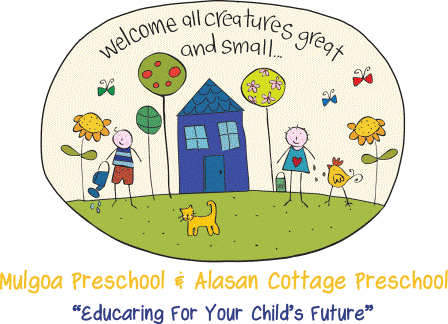
All 4 Kids Kindergarten PTY LTD


THE VIEW OF THE CHILD - Extention
The Child is an active participant in learning.
As children express interests, teachers adapt learning experiences to embrace and further these interests.
"All 4 Kids Time" activities and projects provoke creative thinking and are simply a starting point for a child’s imagination.
There are 100 languages of children.
Loris Malaguzzi wrote, “The child has a hundred languages, a hundred hands, a hundred thoughts, a hundred ways of thinking, of playing, of speaking.”
"All 4 Kids Time" is inclusive of all learners and invites children to express their ideas through art, music, dramatic play, and storytelling.
The child has a right to give and receive respect, compassion and empathy.
Every child has value and deserves respect, compassion and empathy. Children need a safe place to learn who they are within a community.
As children become more socially aware, "All 4 Kids Time" offers routines and experiential community building opportunities for children to practice and learn how they fit in communities, how to problem-solve social challenges, and how to play kindly and cooperatively in groups.
THE ROLE OF THE EDUCATOR - Extention
Educators observe and adapt learning experiences to support a child’s intellectual and social growth.
Learning is a social process based on trust, respect and encouragement.
"All 4 Kids Time" curriculum embeds tips for adapting experiences to match the ages and abilities of learners.
Educators help children connect the dots and support the ever-expanding web of knowledge.
To help children connect new knowledge to previous knowledge, Educators invite children to share what they already know and would like to learn about a topic.
"All 4 Kids Time" presents a new, long-term thematic study each month. Every thematic study is broken down into 20 related topics. Each morning, children are invited to share or show what they already know and what they wonder about each topic.
Educators ask big questions and help children reflect on learning to build meta-cognitive skills.
A Educator is an observer, supporter, and guide that brings wisdom and thoughtfulness to the child’s unique intellectual exploration.
The "All 4 Kids Time" lesson plans remind teachers to ask children about their actions and thoughts throughout the day. As children discuss what they do and show what they learn, a habit of reflection is created and leads to a deeper understanding of their individual learning stories.
Educators allow children the freedom to make choices and pursue curiosity.
Freedom fosters the growth of functional independence, task persistence and self-regulation. Educators nurture a trusting and loving environment in which children can take creative risks.
"All 4 Kids Time" offers “Table Top and Primary Care” activities that Educators can set out for children to select and do independently. Through these experiences, the child builds self-confidence in his or her abilities.
THE ROLE OF THE FAMILY - Extention
Families support the child’s development.
Children thrive on routine both at home and in school. Families build routines through actions, such as keeping regular mealtimes and reading each night. Routines that are consistent at home and school help children stay calm and safely take risks.
"All 4 Kids Time" monthly family newsletter suggests games and storybooks to read with the child at home.
Families know the child’s culture and past experiences.
When schools and families work together, children have a much better chance for success, not just in school but throughout life. Parents know many things about their child the teacher doesn’t, including:
-
The family’s history, including life-shaping events and special relationships.
-
The family’s culture, including caregiving routines, communication methods, beliefs about learning, and expectations for the future.
-
The child’s temperament, habits, likes and dislikes.
Families participate in goal setting and routine communication.
Active communication between teachers and families allows for collaborative goal setting. By sharing child portfolios and talking about child interests, a learning plan can incorporate both the child’s and family’s needs.
"All 4 Kids Time" offers educators tools to create child portfolios. These portfolios provide evidence of the child’s learning process and creative expression. Routine communication can happen during scheduled meetings or through digital family engagement tools like Kindyhub. Kindyhub Family Stories invites parents to comment, like and add photos of the child’s evolving portfolio.
THE ROLE OF THE ENVIRONMENT - Extention
The environment is the third teacher.
Children construct knowledge by exploring their environment. They collect information and learn about the topic through hands-on discovery and investigation.
Throughout the day, children participating in "All 4 Kids Time" curriculum are exposed to books, play-based activities, and materials that reinforce the topic of the day.
A variety of hands-on materials supports literacy and mathematical understanding.
Children learn through sensory experiences and the integration of concepts in play.
"All 4 Kids Time" uses “Small Group” activities to introduce children to materials that integrate new math and literacy concepts. The Educator models the use of the materials and then supports children as they play according to their developmental level.
Self-directed and self-paced hands-on experiences support learning.
Children need opportunities to freely explore their environments and work in groups, as well as individually experiment with ideas and manipulate materials.
"All 4 Kids Time" provides materials and ideas to easily set up independent “Primary Care” activities and STEM Stations.

